Article by Gerlinde Schuller
18 July 2022 . 5 min.
Johnny Weissmuller, better known as ‘Tarzan’, was one of many German-Romanian migrants who left Romania in the last 150 years. He was born Johann Peter Weißmüller – on 2 June 1904 in Freidorf (Szabadfalu), in today’s Timişoara (Temesvar, Temesvár), Romania, then the Austro-Hungarian Empire. His family belongs to the German minority of the Banat Swabians.
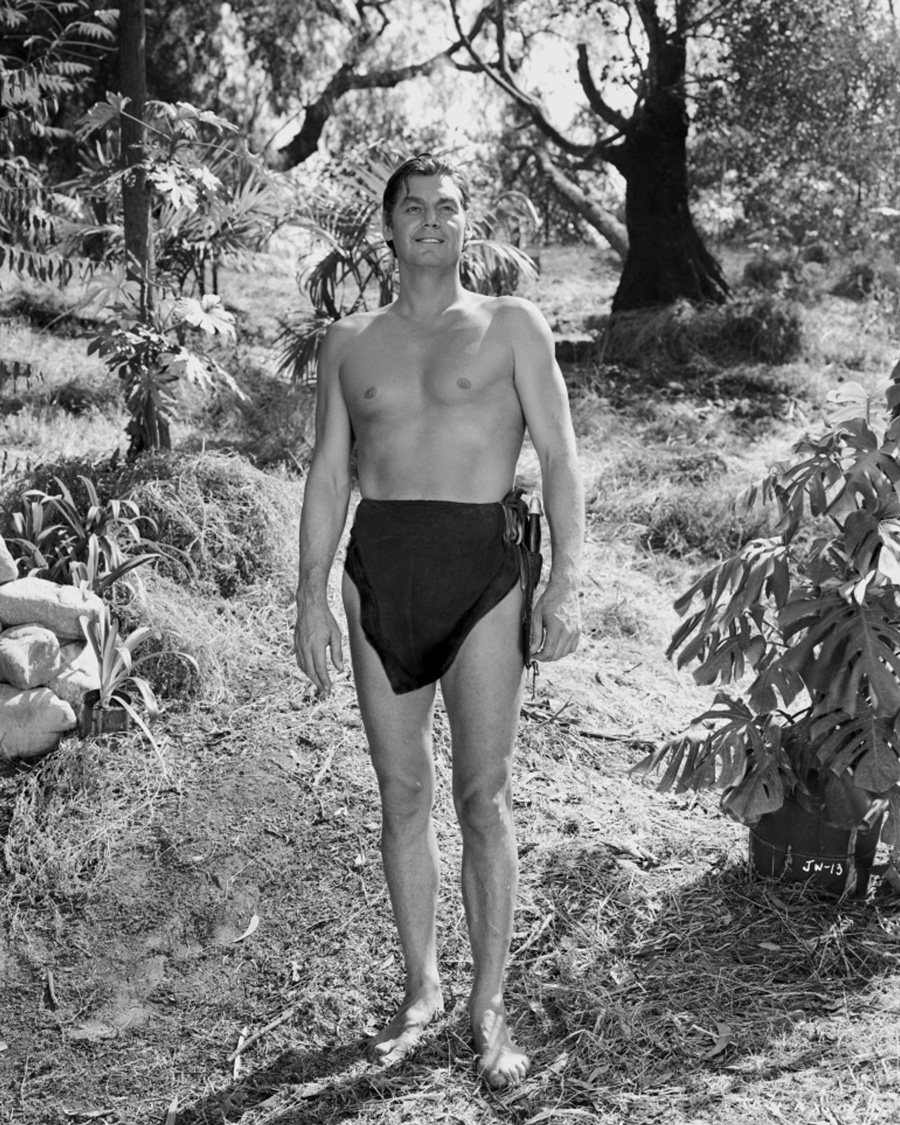
Photo: johnnyweissmuller.com
As a result of Romania’s tumultuous history, 18 recognised ethnic groups live in the country today. Romania is a multiethnic state and, after Russia, the European country with the most minorities. This has resulted in a complex migration history.
The German minorities and the Hungarians have been settled in Transylvania for over 850 years. In 1692 and 1786, the first Banat Swabians, an ethnic group from Germany and Lorraine, settled in the region around Timișoara. These include the ancestors of Johnny Weissmuller, who made their way to Eastern Europe from the Palatinate in Germany around 1755.
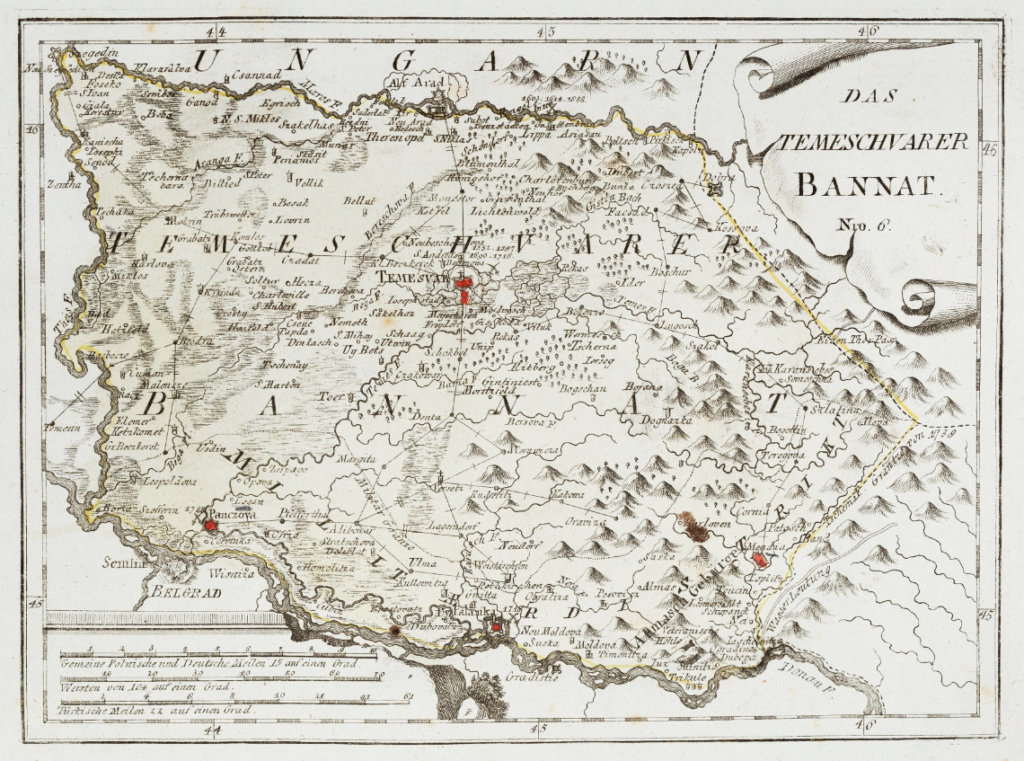
Schauplatz der fünf Theile der Welt, 1789/1806, Vienna (AU)
When Johnny was born in Freidorf in 1904, the area belongs to the Austro-Hungarian Monarchy. The official language is Hungarian and the boy, whose parents speak only German, is recorded in the Roman Catholic church register as János Weiszmüller. His parents call him Hansi for the rest of their lives.
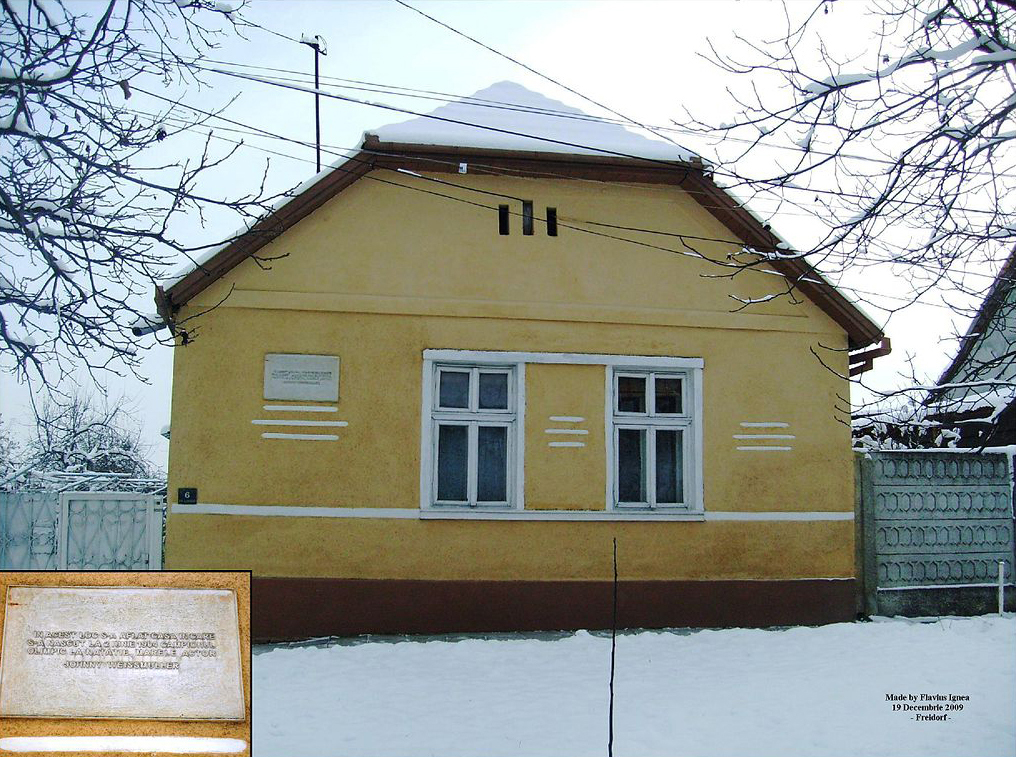
on the site where Johnny Weissmuller’s birthplace stood
Photo: Flavius Ignea
Politically, the German minorities have little freedom. The Dual Monarchy pursues a strict assimilation policy to completely magyarise all non-Hungarians. A reason for Peter Weißmüller and Elisabeth Kersch to decide to emigrate to America with their young son. Like many migrants, they are encouraged in their decision by the fact that other family members have already dared to take this step. Elisabeth wants to join her parents and sister, who already live in the USA and are financing the journey for them.
Johnny and his parents leave Europe on board the S.S. Rotterdam and arrive in Ellis Island, New York on 26 January 1905. Here, again, they have to adapt without contradiction. As soon as they arrive, their German names are changed to the English-sounding names Peter, Elizabeth and Johann Weissmuller. Johann later calls himself Johnny, the English equivalent of Hansi.

Image: genealogy.ro
The family first lives in Windber, Pennsylvania before settling in 1908 in a neighbourhood in Chicago where a large community of Banat Swabians has formed. They seek their own kind and cultivate their German customs here. The story goes that young Johnny takes part in various yodelling competitions, which serve as the basis for the legendary jungle yell he invented.
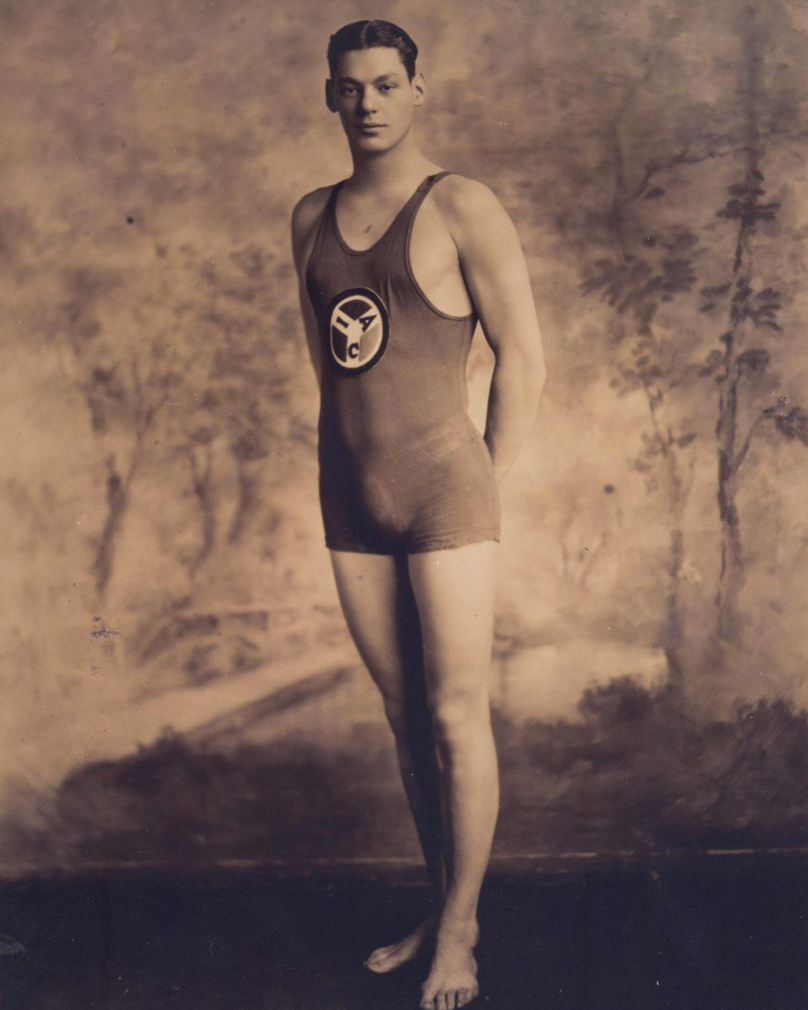
Photo: johnnyweissmuller.com
In Lake Michigan, Johnny discovers his love of water and develops into a professional swimmer. In order to be accepted into the American national team, he claims Windber, USA as his birthplace. The first person ever to complete the 100m freestyle in under a minute, he becomes an American swimming idol. During the Olympic Games in Paris (1924) and Amsterdam (1928), he wins several medals. When he received the gold medals for the United States in Paris, however, he did not yet have U.S. citizenship. This is later granted to him in secrecy. It took him 19 years to earn it.
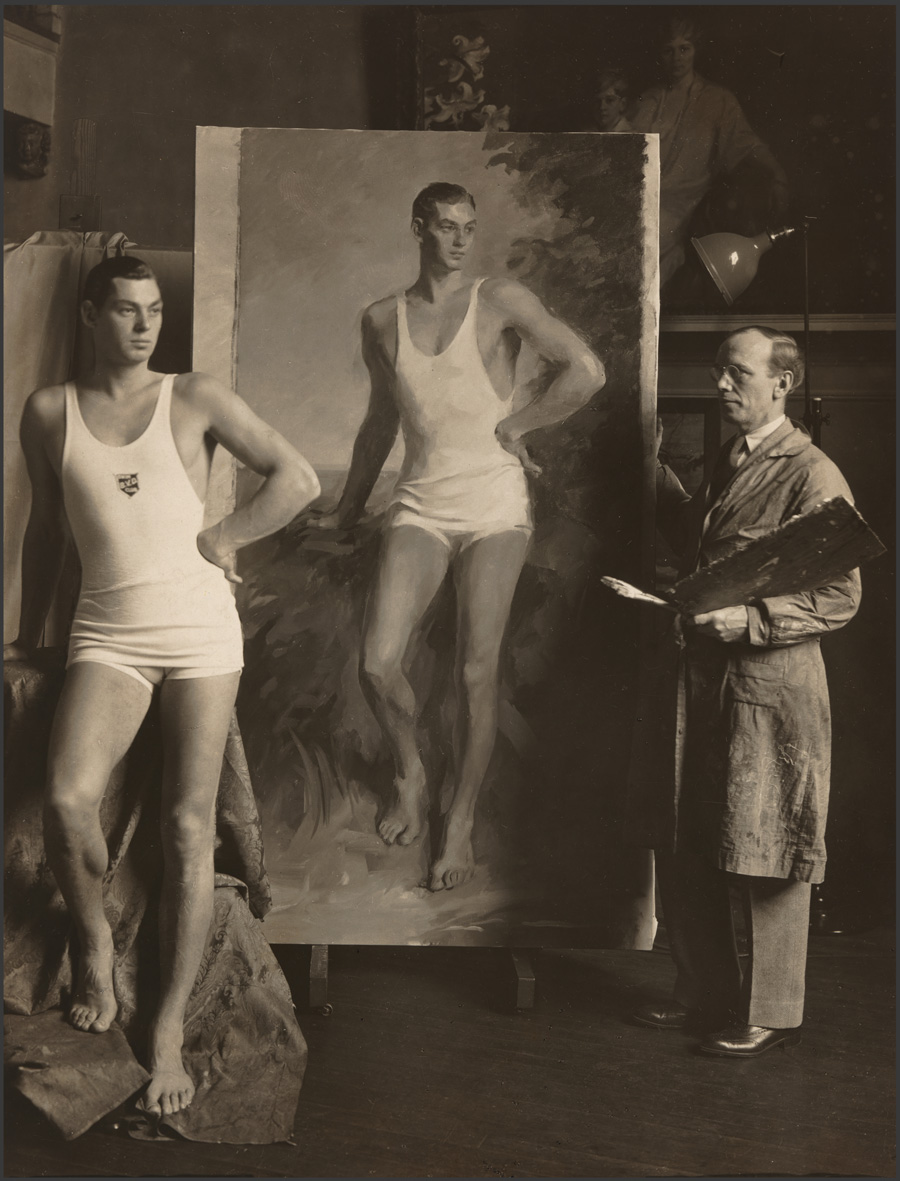
Photo: Pach Brothers Studio, National Portrait Gallery, Smithsonian Institution
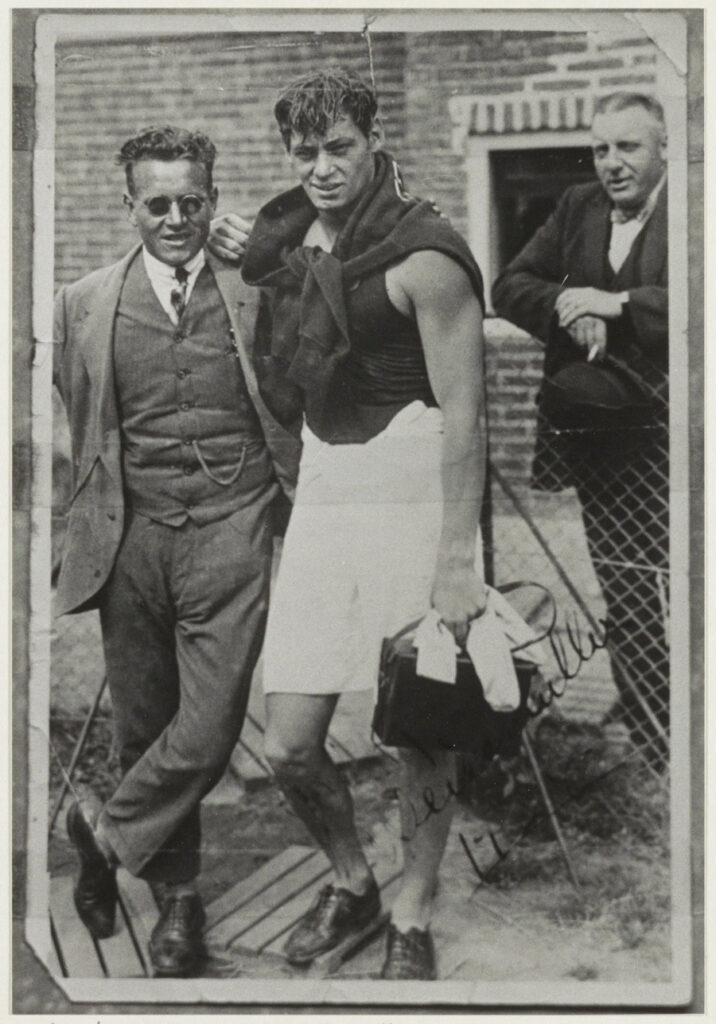
Photo: Poppe de Boer, Noord-Hollands Archief

Photo: johnnyweissmuller.com
By chance, Johnny Weissmuller was cast in the film Tarzan the Ape Man in 1931. The role does not require great acting skills, but an athletic physique and a talent for adventurous stunts.

Photo: johnnyweissmuller.com
The world economic crisis triggered by the Wall Street stock market crash of 1929 has just reached its final low point. Many investors are heavily in debt, unemployment has increased by leaps and bounds in the USA and Europe. In these times of crisis, a cinema ticket is a cheap opportunity to escape the stressful daily routine. Consequently, the first Tarzan film, about a primitive hero who lives in the jungle, becomes a box-office hit.
Johnny Weissmuller plays the role of the jungle man who swings from vine to vine for 17 years. It makes him world famous.
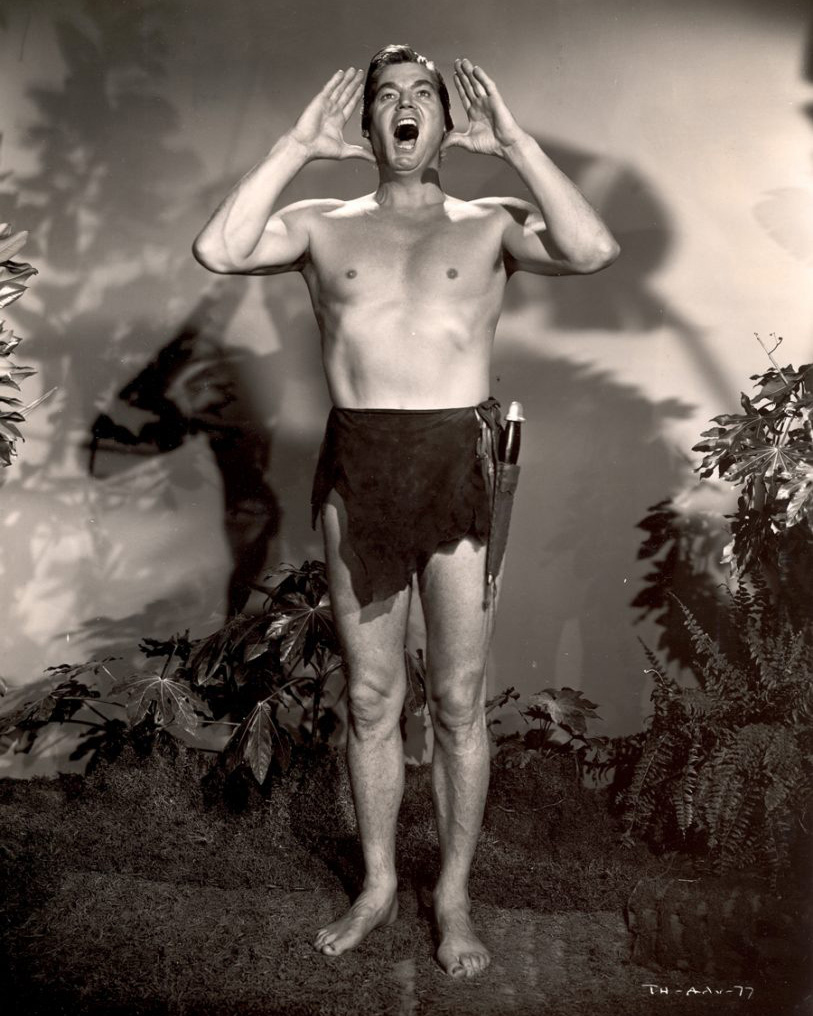
Photo: johnnyweissmuller.com
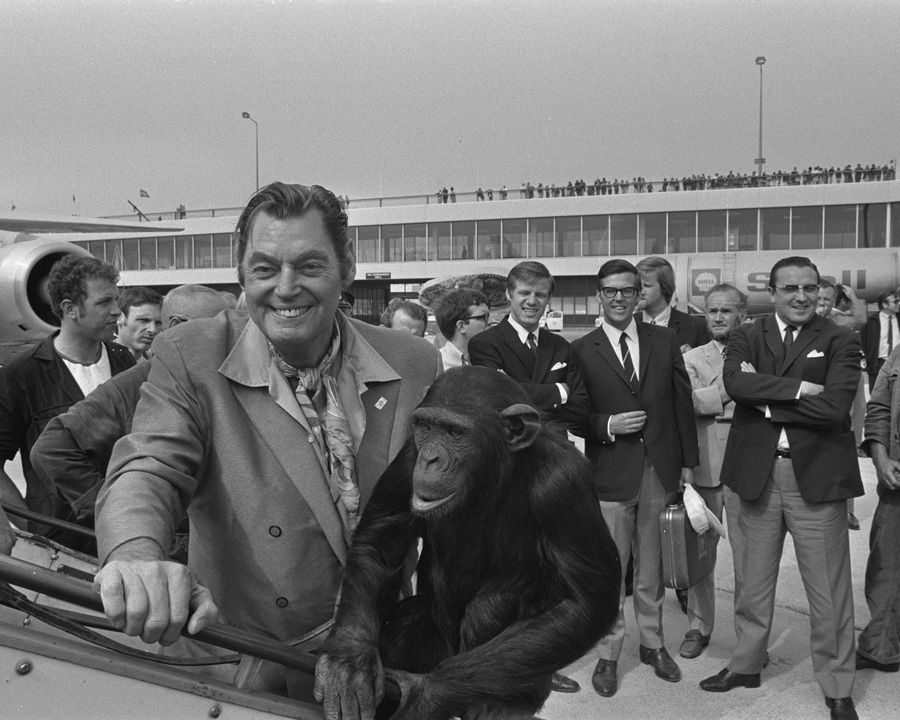
Photo: Joost Evers/Anefo, Nationaal Archief
The black-and-white Tarzan films, subtitled in Romanian, are also shown in the cinema in Romania and later broadcast on television. In the difficult times of the Second World War and the communist dictatorship, they are a welcome change from the monotonous propaganda programmes. Tarzan is very popular among Romanians as well as all minorities and becomes a collective childhood memory for many.
The German minorities in Romania, like Johnny, had to accept arbitrary name changes over many generations. The radical nationality politics of the communists and in particular those of Nicolae Ceaușescu from the 1970s onwards resemble a forced Romanianization. German names are changed – ‘Johann’ becomes ‘Ioan’ in official documents. The ethnic Germans can only officially use their German names again after emigrating to Western Europe.
To this day, there are remnants of the historical national ideology in Romania. The President of Romania Klaus Johannis, who belongs to the German minority of the Transylvanian Saxons, governs under the Romanian name ‘Iohannis’.
Over the course of his life Johnny Weissmuller loses touch with his German-Romanian roots. At the age of three he visits Romania for the last time. He dies on 20 January 1984 in Acapulco, Mexico. Worldwide, he remained known to most people as ‘Tarzan’.
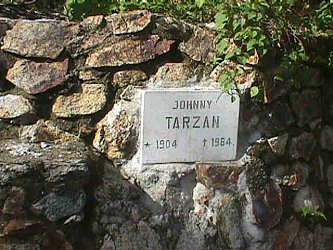
Follow my research on Romania and its minorities on Instagram.
Share:
